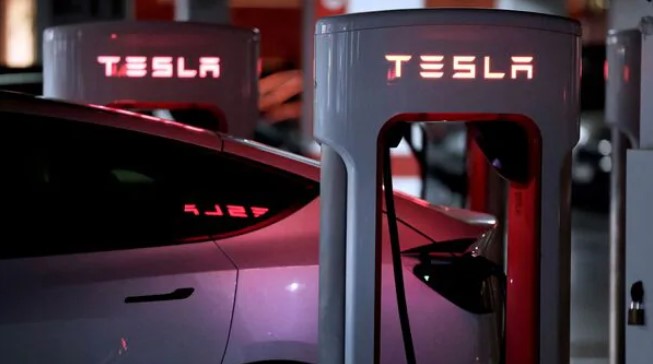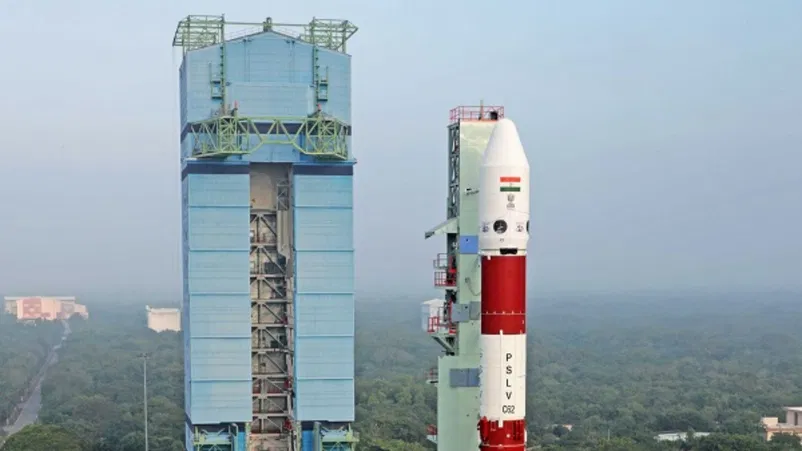
Tesla Skips India Manufacturing, Focuses on Imports: Minister
Tesla’s plans for India appear to have hit a pause again. Despite hopes of a local footprint, the electric vehicle (EV) giant is not interested in Tesla India manufacturing, said Union Minister of Heavy Industries, H.D. Kumaraswamy, on Monday. Instead, Tesla is focusing on importing its EVs and opening showrooms to sell them directly in the Indian market.

Tesla Not Keen on 'Make in India'—Yet
In a significant development for the Indian automotive sector, the Minister clarified that Tesla has shown no immediate interest in setting up manufacturing operations in India, even as the country launched a lucrative electric vehicle policy last year. "Tesla only wants to open showrooms and sell imported cars," Kumaraswamy told reporters.
Table of Contents
ToggleThe company has reportedly finalized locations for showrooms and posted over two dozen job openings, indicating an import-based sales strategy. This approach stands in contrast to India’s broader goal of becoming a global EV manufacturing hub.

India’s EV Push and the New Manufacturing Policy
India recently announced the Scheme to Promote Manufacturing of Electric Passenger Cars in India (SPMEPCI). Under this policy, foreign automakers committing to a local investment of at least $486 million (approximately ₹4,000 crore) can avail a reduced import duty of 15%—a huge drop from the current 70%—on a limited number of imported electric vehicles.
This incentive-driven move is designed to attract companies like Tesla and encourage them to manufacture EVs in India. Yet, Tesla India manufacturing plans remain uncertain, which has surprised many, especially as competitors like Hyundai, Kia, Skoda-Volkswagen, and Mercedes-Benz have reportedly shown interest in local production.

Rohit Sharma's BCCI Moves vs. Tesla’s Global Strategy
In stark contrast to Indian cricket’s bold new strategies—like Rohit Sharma personally influencing staffing decisions in BCCI—Tesla’s approach to India appears more cautious. The EV giant is seemingly testing the waters without committing to infrastructure or long-term investments.
Tesla CEO Elon Musk has previously voiced concerns about India’s high import duties, calling them a major barrier to entry. While Musk hinted at launching more affordable EV models in 2025, including a speculated $24,000 “Model 2,” there’s no confirmation whether India is in the rollout plan.

Challenges for Tesla in the Indian Market
India’s price-sensitive market presents a unique set of challenges. The cheapest Tesla Model 3 costs $42,490 in the U.S., which translates to over ₹37 lakh. With import duties added, this pushes the price into the luxury segment—a segment that represents a tiny fraction of India’s car market.
Moreover, India’s car market is heavily dealership-driven, while Tesla prefers a direct-to-consumer model. This discrepancy might require Tesla to tweak its strategy. Then comes aftersales service—an essential element for long-term customer satisfaction in India’s vast and diverse landscape.
Can Tesla Succeed Without Local Manufacturing?
Experts suggest that unless Tesla shifts gears, its impact in India may remain marginal. “Tesla must rethink pricing and value,” said Rajeev Chaba, CEO emeritus of JSW MG Motor India. “They need to be more competitive than even China if they want to expand in India.”
India’s EV penetration remains low—less than 3% of total car sales. However, it’s growing fast. From just 5,000 electric vehicles sold in 2020 to over 113,000 units in 2024, the growth curve is steep. This rising demand, especially in the premium and aspirational segments, could benefit Tesla—but only if the brand becomes accessible.
Global Politics in the Background
Interestingly, U.S. President Donald Trump recently commented on Tesla’s India plans, calling the idea of setting up a plant there “very unfair.” While the comment did not include specific policy implications, it adds a layer of complexity to Tesla’s global expansion strategy.
What’s Next?
Minister Kumaraswamy confirmed that the application process for India’s EV policy will open soon, with the government officially accepting proposals from interested manufacturers. While Tesla may stay out of manufacturing for now, other global players are gearing up to seize the opportunity.
Whether Tesla will eventually change course and invest in local manufacturing remains to be seen. For now, the company’s India playbook seems focused on premium imports, showroom visibility, and brand positioning—rather than a full-scale production presence.
Conclusion
Tesla India manufacturing remains a distant possibility as the company focuses on imports and retail presence. Despite India’s generous EV policy and the booming electric vehicle market, Elon Musk’s automaker has chosen to delay local investment. If Tesla aims to capture a meaningful share of the Indian market, rethinking its pricing, service model, and manufacturing strategy will be critical in the long run.
GG Face UPW as Playoff Stakes Rise in the WPL Race
Momentum is the most chased yet least owned currency in cricket. It cannot be stored, defended, or borrowed. It is earned moment …
IND vs NZ T20I: Intense Power Clash Sets the Tone Tonight
History is rarely kind to the timid. It rewards those bold enough to challenge the order and those strong enough to defend …
DC vs MI WPL 2026 High Stakes Rivalry Lights Up Vadodara
The Women’s Premier League 2026 returns with a marquee clash as Delhi Capitals and Mumbai Indians face off in Vadodara on Tuesday …
RCB vs GG WPL 2026: A High-Stakes Battle Awaits Tonight
RCB vs GG WPL 2026: A High-Stakes Battle Tonight The Women’s Premier League 2026 is beginning to take shape, and […]
MI W vs UP W WPL 2026 Live Match 8: Mumbai Indians Face UP Warriorz Tonight
MI W vs UP W WPL 2026 Live Match 8: Mumbai Indians Face UP Warriorz Tonight Mumbai Indians Women (MI […]
PSLV Mission Draws Attention After In-Flight Observation
India’s Polar Satellite Launch Vehicle (PSLV) experienced an unexpected development during its latest mission on Monday, as the PSLV rocket deviated from …








